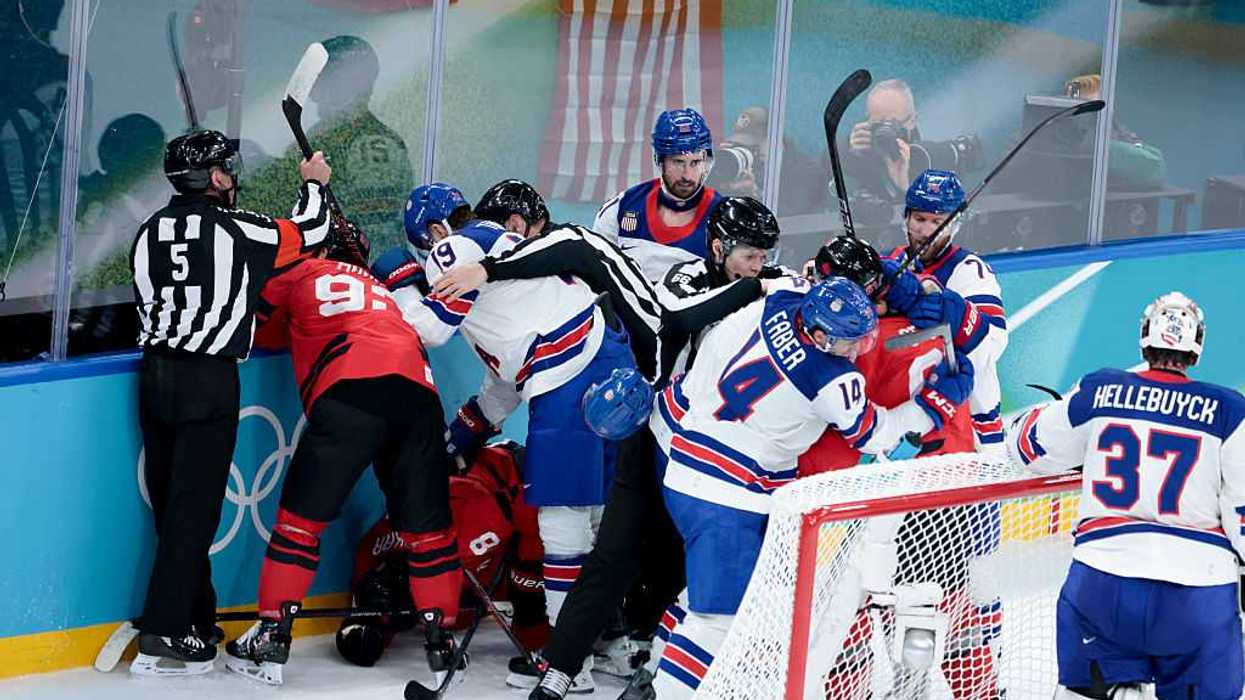© 2026 Blaze Media LLC. All rights reserved.
Will Colleges Use Wild Facebook Accounts to ID Students With Drinking Problems?
October 05, 2011
Any recent college grad or upperclassman looking for a job knows the constant fear of digital espionage by employers that can lead to manic detaging and wall maintenance on Facebook and other social media. Photos on Facebook can capture images that may have been fun to live but not to reveal to the world the next morning. A new study says that such photos should not be ignored and deserve a closer look from college students. While it might have been fun, the image can caption signals of a drinking problem.
"College is a frequent time that students will drink, and we often see references to alcohol on Facebook," Dr. Megan Moreno told ABC News. Moreno is a pediatrician and lead author of the study. "So we wanted to find if there is a way to separate what might be 'rite of passage' drinking from drinking that shows actual clinical risk."
The National Institute on Alcohol Abuse and Alcoholism study examined public Facebook profiles of over 300 undergrads at University of Wisconsin-Madison and the University of Washington.
The study categorized the profiles of participants into three categories: no mention of alcohol, references to alcohol but none to getting drunk, and profiles with occasional status updates and posts with phrases like "being drunk" and "getting wasted." Participants took an online survey to identify if they were at risk for drinking problems.
Surprise, surprise, the third category of participants, who had blatantly wet Facebook profiles, were at a much higher risk on average for a problem drinking than the other two categories of participants. CBS News writes that with a score of 8 or higher indicating a person is at risk for problem drinking, the student groups averaged 4.6, 6.7 and 9.5 respectively.
The study also found that students who posted about problem drinking behaviors were more than six times as likely to report an alcohol-related injury, compared with students who didn't mention alcohol use on Facebook at all.
Readers of the study should not jump to identify those who don't display signs of drinking on social media as the temperance police. The study found that nearly 23 percent of the students in the first and most conservative category, still scored to be at-risk based on their responses in the clinical survey.
While some think social media can be used to identify red flags and health concerns, others worry such methods applied in this study can come at the cost of individual privacy.
"It's very exciting but also perplexing," Tufts Professor Lisa Gualtieri told ABC. "Where do you draw the lines between helping someone and invading their privacy?"
"I would personally hesitate to use social media tools to investigate a student's health or emotional problems," Gualtieri said. "It seems like there are a wealth of more traditional ways of detecting problems among students," like class absences or poor grades.
In response to worries about privacy, Moreno says the goal of the study is not to stalk college students.
"Our study suggests that parents and college health care providers who note references to problem drinking on the Facebook profiles of adolescents should consider discussing drinking habits with their children and patients."
According to the study's online description, the participates were between the age of 18 and 20, and it is unclear why researchers chose participants underage to be drinking legally.
Want to leave a tip?
We answer to you. Help keep our content free of advertisers and big tech censorship by leaving a tip today.
Want to join the conversation?
Already a subscriber?
more stories
Sign up for the Blaze newsletter
By signing up, you agree to our Privacy Policy and Terms of Use, and agree to receive content that may sometimes include advertisements. You may opt out at any time.
Related Content
© 2026 Blaze Media LLC. All rights reserved.
Get the stories that matter most delivered directly to your inbox.
By signing up, you agree to our Privacy Policy and Terms of Use, and agree to receive content that may sometimes include advertisements. You may opt out at any time.







